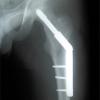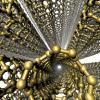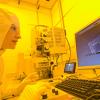Nanotechnology has multiple applications. However, there is still much uncertainty about the potential risks related to this new technology. To help resolve these uncertainties, RIVM conducts research and provides policy advice to various Dutch ministries.
Areas of application
Nanotechnology finds application in many different areas. For example, objects can be made stronger than normal, and solar cells can have improved efficiencies. Nanotechnology also makes it possible to ensure that medicines are targeted to a specific location in the body where they are needed. Due to these highly promising characteristics, the government and the business community invest a great deal in nanomaterials, and the technology has become an inseparable part of our society. Yet, little is known about the risks for humans and the environment associated with the use of nanomaterials. There are indications that some nanomaterials are hazardous and others are not. It is not known why some materials are hazardous.
Insight into risks
RIVM performs research into the risks associated with nanomaterials. RIVM also collects relevant knowledge on this topic in the Risks of Nanotechnology Knowledge and Information Centre (KIR-nano). This knowledge enables improvement of the legal frameworks that deal with the safety of materials and products made with nanotechnology. RIVM collaborates on the risk assessment of nanomaterials and provides independent and reliable information.
Identifying opportunities
The government aims to stimulate the opportunities offered by nanotechnology. RIVM endeavours to support innovation with knowledge and expertise about risks and regulatory frameworks. At the same time, this enables RIVM to identify which knowledge is needed most in practice. In order to ensure independence and objectivity, RIVM’s knowledge and expertise are not used to develop specific products for manufacturers.
Download brochure
International collaboration on nanotechnology
Media
This video talks about nanotechnology & Safety and the role the RIVM plays as Advisor and Leading role Player in International Research.













